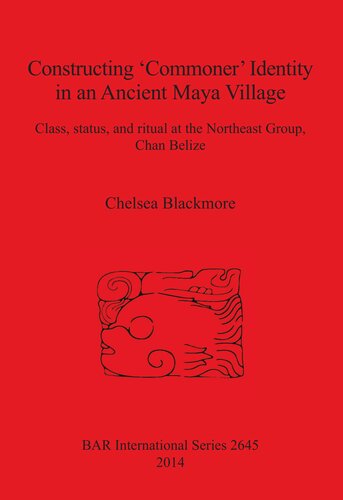

Most ebook files are in PDF format, so you can easily read them using various software such as Foxit Reader or directly on the Google Chrome browser.
Some ebook files are released by publishers in other formats such as .awz, .mobi, .epub, .fb2, etc. You may need to install specific software to read these formats on mobile/PC, such as Calibre.
Please read the tutorial at this link: https://ebookbell.com/faq
We offer FREE conversion to the popular formats you request; however, this may take some time. Therefore, right after payment, please email us, and we will try to provide the service as quickly as possible.
For some exceptional file formats or broken links (if any), please refrain from opening any disputes. Instead, email us first, and we will try to assist within a maximum of 6 hours.
EbookBell Team

0.0
0 reviewsResearch at the Northeast Group explores how the malleability of commoner identity is crucial to interpretations of ancient Maya society. This volume has two main aims: first to demonstrate how residents of the Northeast Group used materials and architecture to distinguish themselves from others in the neighborhood, and second to examine the implications of commoners as agents of history. Fundamental to this is the deconstruction of what archaeologists mean by commoner and the theoretical and methodological assumptions built into these definitions. Regardless of extensive research in settlement and household studies, interpretations of ancient Maya society continued to be framed with reference to elites. As elites are defined as the motor of change within civilization, commoners, in contrast, are characterized as static and passive. This books seeks to demonstrate that these models do not accurately reflect who commoners were and their impact in the construction of ancient Maya society as a whole.